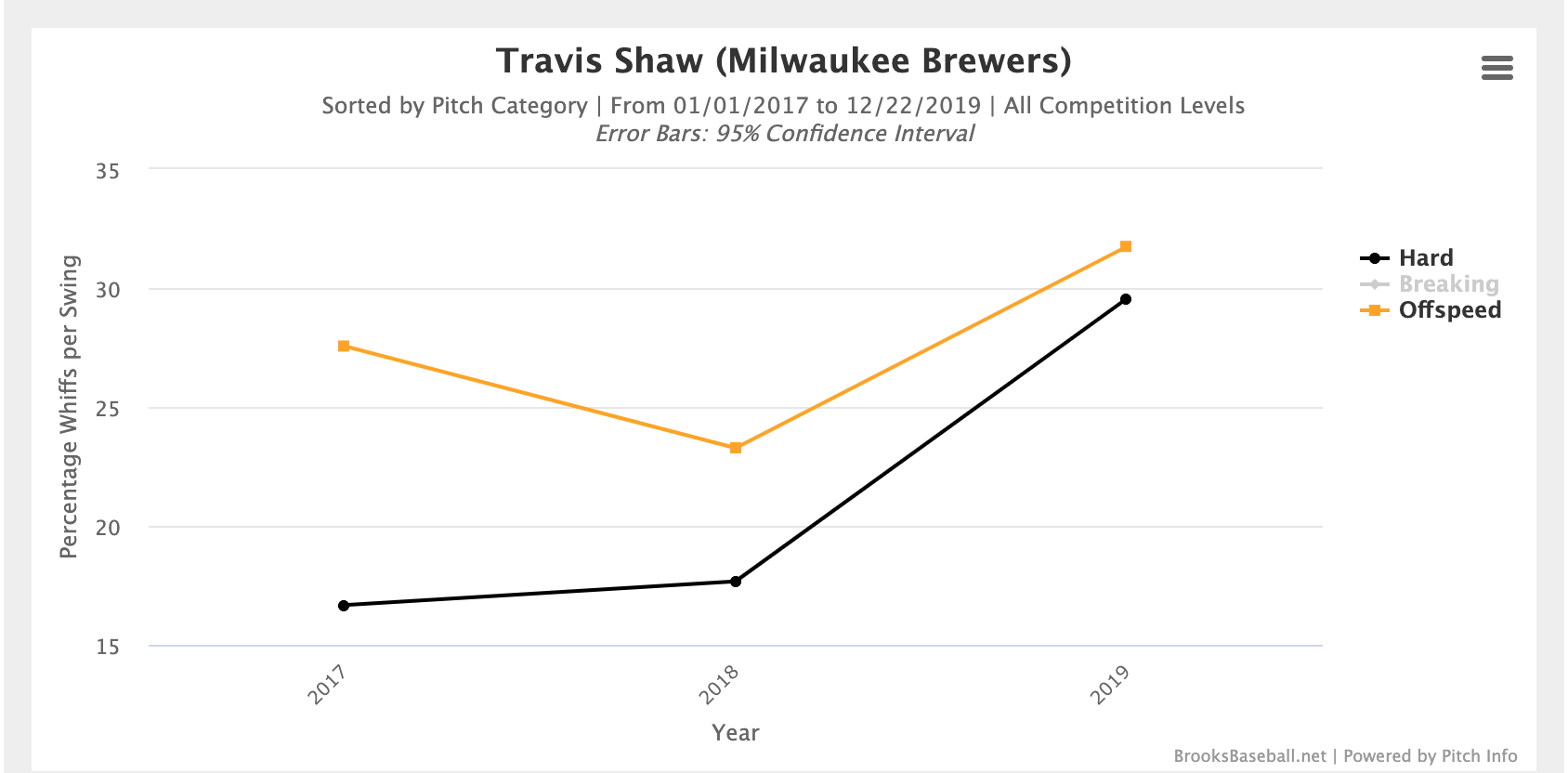In investing there is something called a value trap. It’s an investment that appears to be very cheap because it is trading at low evaluation metrics like book value, earnings and so on. The investment looks too good to pass up but hidden within the numbers and analysis is further doom (like L Brands for example).
Travis Shaw signed a one-year $4 million-dollar deal with the Blue Jays and will likely be their everyday first baseman (and I presume will play some third base when Vladimir Guerrero Jr. takes a night off).
Last year Shaw’s average ADP in NFBC was 91.2 overall. Even if he repeated his good 2018 season fantasy owners were losing money/value at that ADP. (He was my 90th hitter overall.) After looking at his brutal 2019 some fantasy owners may disregard that season and conclude he’s a value play for 2020.
The underlying statistics were so awful last year. The strikeout rate went from 18% to 33% and the contact rate went from 81% to 71%. FanSided says last year’s poor performance was all mental and the season spiraled out of control. I’ve never played baseball at any professional level, but it has to be difficult to see a .164 batting average on the big scoreboard in the middle July.
From my research Shaw didn’t have any injuries so it’s possible his issues were all mental and a blank slate will do wonders for him. However, let’s take a look at the percentage of whiffs per swing per BrooksBaseball. The whiff percentage increased nearly 12 percentage points against fastballs. That indicates A) he may have lost a tick of bat speed and was guessing at the plate, B) he lost more than a tick of bat speed or C) he abandoned his approach at the plate because of his early season struggles.
Whether Shaw is a value trap or not is dependent on where he goes in drafts. Since first base is so thin I can see many fantasy owners, when presented between Shaw versus Christian Walker/Michael Chavis/Renato Nunez, will take Shaw because he has more upside. The Brewers just signed Justin Smoak to play first base. Shaw could’ve played first base for them; the Brewers know more about Shaw than any other club and they decided to sign Smoak. Shaw can play third and second; his versatility is much more valuable than what Smoak brings. Despite all that the Brewers still decided to sign Smoak.
Unless I can get Shaw really cheap I’m not going to own him, which makes him a value trap.
All that said, what’s good about drafting Shaw is after about three weeks we should have a pretty good idea if 2019 was a fluke year or not — and that has value because if it wasn’t a fluke you can drop him and move on. If you draft Edwin Encarcion or Nelson Cruz you will have to wait until July before deciding whether to cut them or not.




